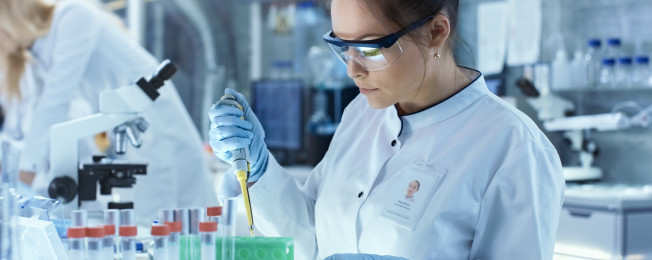Healthcare is undergoing a revolution. New technology and enhanced computer power are now aiding everything from how we find and develop drugs to how those drugs get delivered.
But it’s not just the medical sector – or even patients – that stand to profit from new advancements. Wider society could benefit as well.
Tata Consultancy Services (TCS) is currently patenting a new computer model which could not only completely change the way drugs are delivered into the body, but reduce the need for animal testing in the years ahead.
Digital skin
One area of research currently being focussed on by both personal care and pharmaceutical companies is how to deliver drugs painlessly through the skin, rather than through pills, injections or other invasive methods.
When drugs are delivered in a pill or through an injection, the body starts to break them down, meaning that only 20% to 30% reaches the intended target. In addition, releasing a drug in a controlled or prolonged manner is difficult to achieve using these methods.
TCS’s new computer model, using a ‘digital skin’ to simulate ways in which drugs could be delivered, could go some way to solving these issues.
The key to this lies in working out how drugs can be attached to molecules that are small enough to penetrate the skin’s layers. Currently, most drug molecules can’t be delivered through direct skin contact, because they are too large to penetrate the skin’s barrier.
The skin’s primary job of course, is to keep harmful bacteria and viruses from being able to enter. Therefore, many drugs have to be injected.
When researchers come up with a new combination of drug and molecule that they think might work, they have to test it “in vivo”, that is, on a live organism, and this is usually an animal.
Millions of animals are used each year for medical research. And, apart from the obvious ethical concerns, it’s also a time-consuming and costly method, so there is a limit to the number of combinations that can be tested.
A new way of doing things
TCS’s digital replica of the skin recreates each distinct layer, enabling researchers to explore hundreds of thousands of molecule and drug combinations, far beyond what is currently achievable.
“Take the example of diabetes, if somebody has to take insulin, they have to inject it,” explains Beena Rai, Head of Physical Sciences Research at TCS.
“I can put in a new formulation – the combination of insulin with certain other chemicals or certain nanoparticles which will help insulin penetrate the skin – and test it against the digital skin to see if it works. In this way, the model helps us to design formulations.
“And then let’s say you are required to perform 100 experiments in order to have a particular drug reach the next clinical stage. With the digital model, you can test over 100,000 if you want. So, your search space has suddenly expanded 100 times, with very little cost,” adds Rai.
Testing using the digital skin is much more accurate – and also more likely to lead to successful products.
“The digital skin is much better than animal skin because animal skin is not the same as our skin. The animal models don’t replicate human behavior, which means that, quite often, your drug fails in later stage clinical trials. In fact, nine out of 10 drugs never come to market,” adds Rai.
“So, not only are we saving animals, we are more accurate, and it is also cost-effective because you are doing everything ‘in-silico’ (digitally), so it also saves time and cost.”
In addition to the digital skin, TCS has built a virtual-reality visualization which brings the model to life, thus providing a deeper insight into the design of formulations.
Such innovations could revolutionize the development of personal care products, particularly anti-ageing ones. The model simulates the elasticity of each layer of skin, allowing research into what products might affect it.

Wider benefits
Exploring this new method of drug delivery is important.
Eliminating the need for trials on live animals could mean a drastic reduction in the time a drug takes to get to market.
Patients would enjoy better and less invasive drug delivery, and, more importantly, the need for a medical practitioner to deliver the drug is greatly reduced. This is especially relevant for rural areas and economies where the doctor/patient ratio is low.
While the digital skin is still in the early stage of development, it does pave the way for an entire human body to be created in digital form. And the technology has wider uses beyond drug delivery, such as creating skin for robots to give them a human touch.
With 20 patents filed so far and talks well under way with personal care and pharmaceutical companies, TCS hopes to launch skin-delivery products in the very near future.


